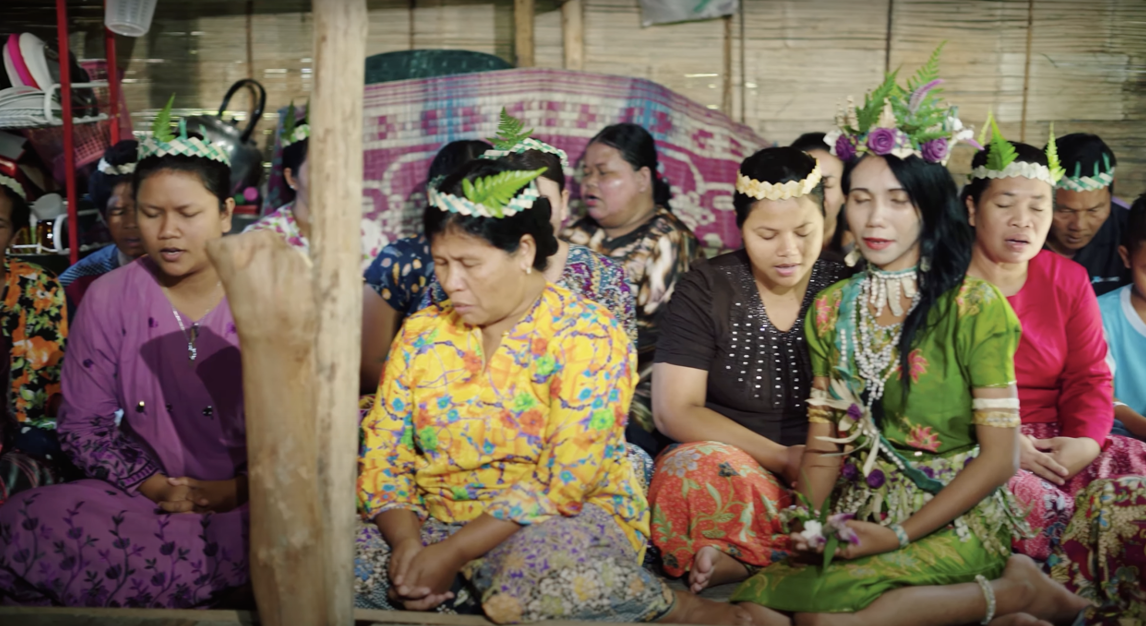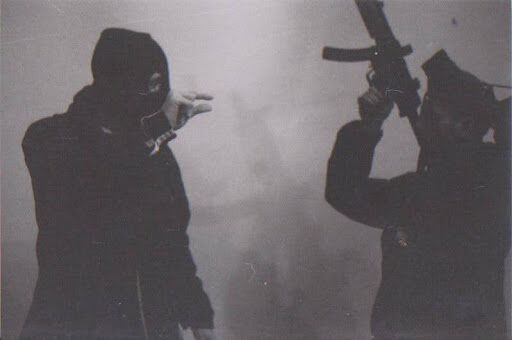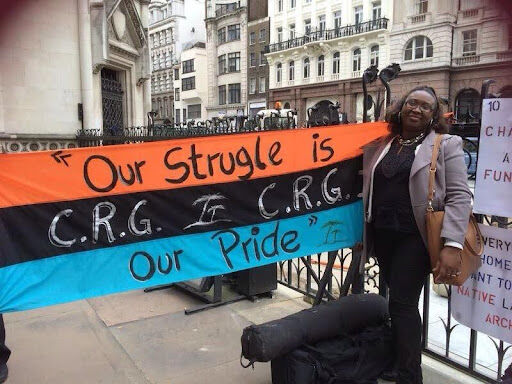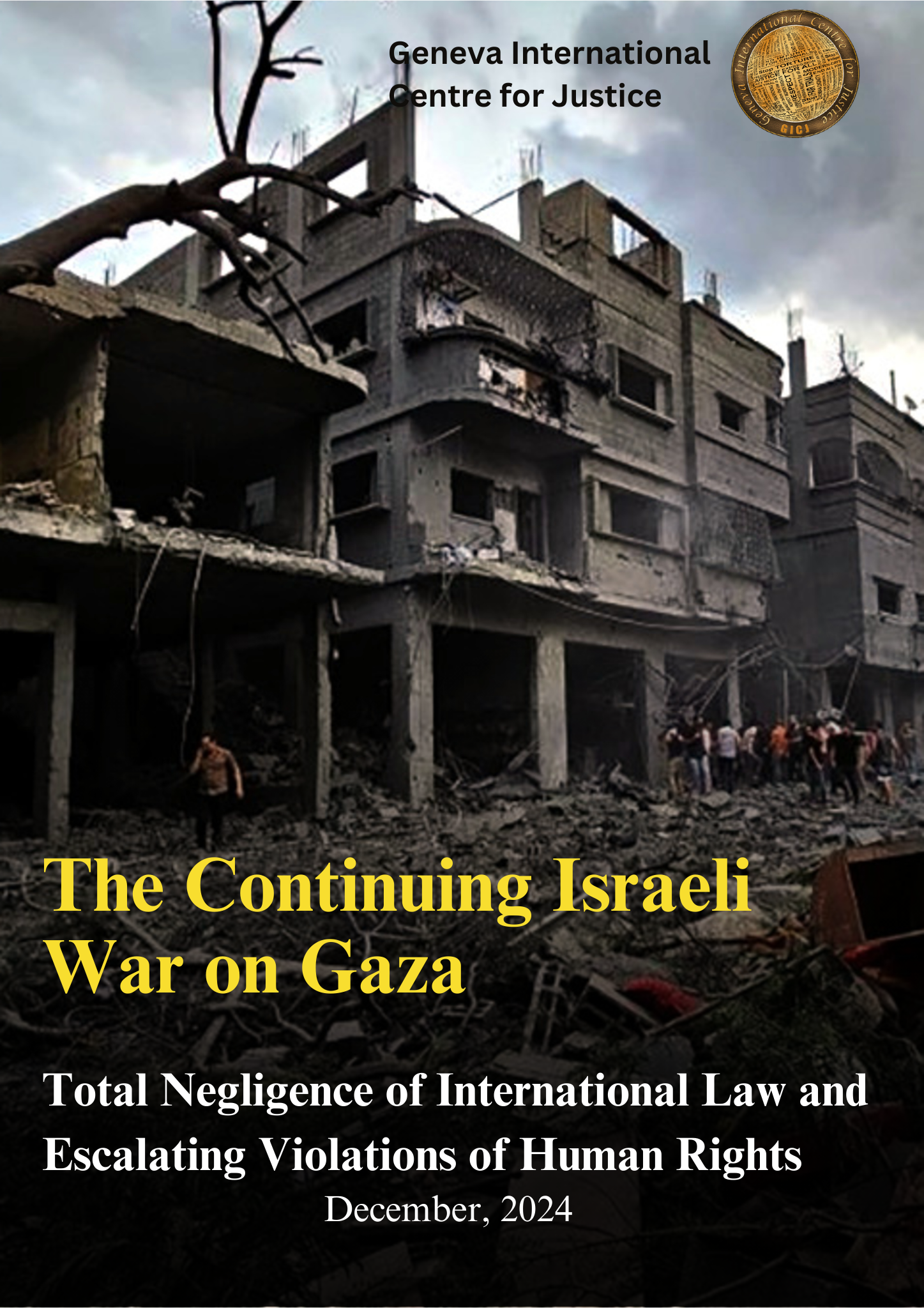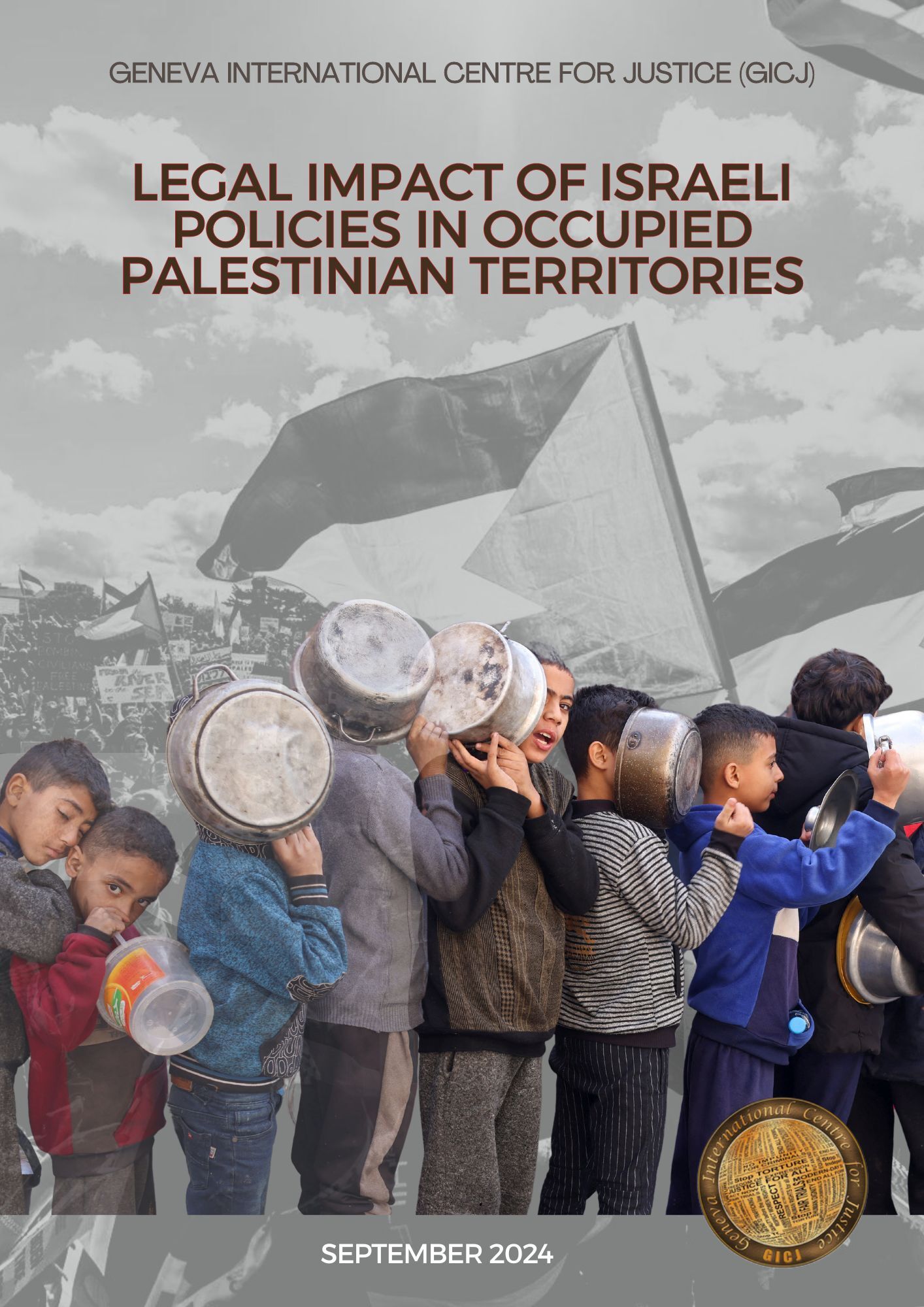UPR – Third Report of Algeria
On May 8, 2017, Mr. Ramtane Lamamra, Minister for Foreign Affairs and International Cooperation for Algeria, presented the national report of the Universal Periodic Review of Algeria on its human rights commitments and application of previous recommendations.
At the outset, the Minister stated that following the Universal Periodic Review of September 2012, the third report was prepared after inclusive consultations with governmental agencies and civil society and addressed the measures taken to implement the recommendations of the second cycle.
Presentation of the National Report

The constitutional review process: one of the main steps Algeria made in the promotion of human rights and in the implementation of the recommendations adopted in 2012 is the amendment of the amendment of certain Constitutional provisions. The aim of the review process was to reinforce the democratic system and to enhance and consolidate fundamental individual and collective freedoms.
Reinforcement of the role of the parliamentary opposition: Algeria took important steps aimed at granting further rights to opposition parties, including parliamentary opposition.
Consolidation of the independence of the judiciary: the independence of the judiciary has been strengthened further each time the Constitution has been amended.
Further steps taken by Algeria to implement and respect the recommendations accepted in 2012 include the establishment of the High Independent Authority for Elections Oversight, of the National Human Rights Council, of the Office of the National Child Protection Ombudsman and of a regulatory authority for the broadcast media and a provisional committee to issue press credentials and passes.
Promotion and protection of human rights on the ground
Amendment of the Electoral Code: important steps were taken to ensure that all political parties enjoy same rights and visibility and to promote transparency throughout the electoral process.
Reinforcement of citizens’ rights and guarantees
Police custody: ordinance No. 15-02 of 23 July 2015 modifies the rules governing situations in which persons are held in police custody and strengthens pre-existing measures for protecting the rights of such persons.
Pretrial detention and the presumption of innocence: the rules and conditions under which pretrial detention may be ordered have been made more stringent. Pretrial detention cannot be ordered in cases involving offences punishable by less than 3 years’ imprisonment and is subject to a four-month limit.
The criminalization of violence against women: marital violence, physical violence, assault, repeated verbal or psychological violence, abandonment of the family, accosting a woman in public, any indecent assault by means of an act, gesture or word, an act of aggression conducted by means of surprise, violence, coercion or threat constituting an assault on a woman’s sexual integrity, and sexual harassment by means of any act, use of language or sexual insinuation are all severely punished by law.
Decriminalization of management and press offences: the revised Constitution stipulates that press offences are not punishable by a custodial penalty.
Child protection: the Child Protection Act guarantees protection for children from any form of prejudice, neglect, violence, ill-treatment, exploitation and any type of physical, moral or sexual assault. To this end, it sets out appropriate measures for safeguarding their rights during emergency situations, disasters, war and other forms of armed conflict. It also provides for measures to protect children from the media in order to shield them from any influence that could undermine their physical or mental well-being.
Human rights awareness-raising, dissemination and training: the various training programmes offered in the divisional units of the Ministry of Justice include modules for the initial training, in-house training and professional development of all judges and prosecutors.
Follow-up to recommendations made during the preceding review
Recommendations noted
Algeria adopted new laws regarding democratic freedoms which are based on international standards. The revised Constitution provides further guarantees for the exercise of freedom of information, freedom to demonstrate peacefully and freedom of expression. Furthermore,
Algeria has no laws that discriminate against any group of persons. Inheritance rights are derived from the laws of Islam (sharia) – this is the only case in which there is a difference in succession rights between the two sexes. As far as the enhancement of freedom of expression is concerned, the Information Act and the Associations Act promulgated in 2012 have helped to strengthen further the realization of the right to freedom of opinion and expression and the right to freedom of association. Finally, Algeria has maintained a de facto moratorium on the application of the death penalty since September 1993 and has amended its Criminal Code to restrict the applicability of capital punishment to the most serious crimes.
Partially implemented recommendations
Algeria is party to almost half of the international human rights instruments and has consolidated the right to establish associations and encourages the formation of partnerships.
Prisons in Algeria are under the authority of the courts and are inspected on a regular basis by the corresponding prosecutor’s office. Algerian non-government organizations, the National Advisory Committee on the Promotion and Protection of Human Rights and the International Committee of the Red Cross (ICRC) regularly visit prisons and holding facilities in police stations and at National Gendarmerie posts.
Implemented recommendations
Algeria has adopted a framework law on persons with disabilities, promoted equality among all members of the population and has taken steps to criminalise violence against women, to punish violent acts committed in the workplace, in public areas and in private spheres of life and to enhance women’s participation in the economic and political sphere. Furthermore, the Algerian Constitution guarantees the right to freedom of opinion, expression and association and does not criminalise the exercise of the right of freedom of religion. Finally, there are no prisoners of conscience in Algeria and the State supports political parties so that they can pursue their activities.
Accepted recommendations
Algeria provided information on the steps taken to implement all accepted recommendations, including efforts made to end violence against women, promote gender equality, punish violence against women, enhance democratic freedoms, promote the rights of the child and the right to education, create an inclusive society, reform the justice system, assist persons with disabilities, end modern slavery and promote equal and sustainable development.
Challenges
While concrete efforts to improve the human rights situation are being made, Algeria continues to face difficulties caused by the tense regional situation, the spread of terrorist threats, the backlashes of colonialism and the damage provoked by the oil shock which has caused a dramatic decrease in exports revenues.
Compilation of the Office of the United Nations High Commissioner for Human Rights
The OHCHR invited the government of Algeria to ratify all relevant international treaties, including the Optional Protocol to the Convention on the Rights of the Child on a communications procedure, the International Convention for the Protection of All Persons from Enforced Disappearance and the Optional Protocols to the International Covenant on Economic, Social and Cultural Rights, the International Covenant on Civil and Political Rights, the Convention on the Elimination of All Forms of Discrimination against Women, the Convention against Torture and Other Cruel, Inhuman or Degrading Treatment or Punishment and the Convention on the Rights of Persons with Disabilities.
The Office of the United Nations High Commissioner for Human Rights (OHCHR) noted that as to cooperation with OHCHR and human rights mechanisms, apart from the visits by the High Commissioner in 2012, the Special Rapporteur on the right to education in January 2015 and the Special Rapporteur on the right of everyone to the enjoyment of the highest attainable standard of physical and mental health in May 2016, Algeria maintained, in general, its non-cooperation with United Nations human rights experts and mechanisms.
Equality and non-discrimination: The Committee on the Elimination of Racial Discrimination is concerned by the persistence of racist stereotypes, by the lack of definition of racial discrimination in the legal framework and by the hate speech that is sometimes directed against the Amazighs, asylum seekers, refugees and sub-Saharan Africans.
Right to life, liberty and security of person: the Committee on the Rights of the Child is concerned that children are subjected to long periods of pretrial detention and that they are not always separated from adults in detention.
Administration of justice, including impunity, and the rule of law: concerning the combating of impunity, OHCHR noted that, partly as a result of sweeping amnesty measures that has entrenched impunity, the security forces continued to violate human rights. Activists and the families of victims of enforced disappearances continue to demand truth and justice despite threats being made against them.
Fundamental freedoms and the right to participate in public and political life: the OHCHR expressed concern over the alleged excessive use of force against protesters who had often taken to the streets to complain about unemployment and inflation. OHCHR urged the national authorities to respect people’s right to freedom of expression and to ensure that any wrongdoing by police forces was properly investigated. Furthermore, the OHCHR indicated that the Penal Code criminalizes press writings, cartoons and speech that insulted or offended the President, the parliament, the judiciary, or the armed forces.
Prohibition of all forms of slavery: Algeria lacks appropriate shelters for survivors of violence, facilities to deal with urgent cases and mechanisms for referral to the UNHCR refugee status determination procedure.
Right to privacy and family life: registration officers and family judges often refuse to register children born out of wedlock, although no legal restriction exists, and refugee and stateless children are not systematically provided with birth certificates.
Right to work and to just and favourable conditions of work: the level of unemployment among women and youth remains worryingly high.
Right to social security: social programmes targeting families in the most vulnerable situations, such as free education and health services and social housing programmes, hardly reach the poorest children.
Right to education: the OHCHR recommended the Government must address the imperative of ensuring quality in education as a matter of urgency. State party should be encouraged to guarantee access to education for all, in particular children with disabilities, girls and children from rural areas and from the poorest household.
Women: The Special Rapporteur on health regretted that violence against women is largely condoned by society. Abused women, including those abused by their husbands are socially stigmatized and do not always receive adequate protection and services. The Committee on the Rights of the Child is concerned that article 336 of the Arabic version of the Penal Code defines rape as an attack on so-called “honour” and that rapists might therefore avoid punishment by marrying the girl they had raped.
Children: sexual abuse against children in school is on the rise. Furthermore, child victims of sexual exploitation and abuse are being discouraged from or afraid of reporting rape and being ostracized and stigmatized. Corporal punishment remains widely accepted in society and routinely used as a disciplinary measure in schools, is lawful in the home and in alternative care settings and there is no explicit legal prohibition of the use of corporal punishment as a disciplinary measure in penal institutions.
Migrants, refugees, asylum seekers and internally displaced persons: the UNHCR reported that Algeria lacks a comprehensive legislative framework and efficient administrative institutions for the protection of refugees, asylum seekers and stateless persons. Algeria was urged to decriminalize irregular migration and to ensure that children of migrant workers enjoy their rights without discrimination.

Summary of Stakeholders Information
Several organisations invited Algeria to ratify all relevant international treaties to promote the effective protection of human rights, including the ICED, and asked the government to extend invitations to all UN Special Procedures, including the Special Rapporteur on torture.
Human rights and counter-terrorism: one organisation noted that the Criminal Code did not define terrorism precisely and that it criminalized acts that were instances of the exercise of the freedoms of opinion, expression and peaceful assembly.
Right to life, liberty and security of person: one organisation recalled that, although no executions had been carried out in Algeria since 1993, the authorities did not support previous UPR recommendations aimed at abolishing the death penalty. Another organisation added that, since 2012, courts had continued to issue death sentences, mostly on murder and terrorism charges. A group of stakeholders recommended that the Government investigate all instances of extra-judicial killing and excessive force committed by security forces while monitoring protests and demonstrations. Finally, one organisation indicated that for crimes considered to be terrorist or subversive crimes, the 48-hour period of police custody, the maximum legal length, could be extended up to five times, or for a total of 12 days.
Administration of justice, including impunity, and the rule of law: one organisation indicated that despite the reforms, the executive was still playing a leading role in the appointment of judges.
Fundamental freedoms and the right to participate in public and political life: human rights defenders continued to face significant restrictions to their work. Furthermore, human rights defenders, journalists, lawyers and bloggers had been harassed and subjected to police inquiries, prosecution and false charges. LGBT rights defenders continued to face stigmatization and persecution and labor rights defenders organizing protests are also targeted. Furthermore, journalists and media outlets have reported that they operated in a restrictive environment and are forced to exercise self-censorship. Despite the lifting of the state of emergency in 2011, demonstrations still require prior authorization, unauthorized demonstrations are considered illegal and demonstrators are at risk of prosecution. Finally, one organisation asked the government to ensure that religious minorities can freely exercise their right to freedom of thought, conscience, and religion, in their worship, observance, practice, and teaching.
Economic social and cultural rights
Right to work and to just and favourable conditions of work: several organisations are of the view that the imposition of austerity measures since the fall in the price of oil in 2014 has led to the stifling of the social and trade union sectors. Informal labour accounts for a large share of the labour market.
Women: Algeria does not have a law effectively criminalizing violence against women. Four organisations recommended that Algeria define spousal rape, in the law, as a separate criminal offence, that it adopt a law to combat gender-based violence in cooperation with civil society and that it ensure that the victims of sexual violence, including LGBT women, had access to effective remedies.
Minorities and indigenous peoples: one organisation reported on intimidation and targeting of human rights defenders working on ethnic, religious and sexual minorities, as well as indigenous rights, including defenders belonging to Mozabite and Kabyle groups.
Migrants: several stakeholders noted that in the absence of an adequate legal framework for asylum, refugees lack protection, as they are classed as persons in an irregular situation. Discriminatory practices targeting sub-Saharan migrants, the stigmatization of single mothers and migrants’ irregular situation continue to be obstacles to health care. Access to education also remains very limited for migrants and asylum seekers. Migrants and asylum seekers are not guaranteed the right to work, creating a situation that exposed migrant workers to exploitation and human trafficking.

Interactive dialogue during the 27th Session of the U P R
During the presentation of the third National Report of Algeria, Mr. Ramtane Lamamra Minister for Foreign Affairs and International Cooperation for Algeria, presented the improvements made by the country in the implementation of the recommendations accepted after the 2012 UPR session. Mr. Lamamra provided extensive explanations on the constitutional amendments of 2014, in particular those related to the implementation of recommendations accepted following the second cycle of the UPR. Algeria has ratified several relevant UN treaties and international covenants; has actively engaged with the United Nations extending invitations to six special procedures, and has taken important steps to protect and promote freedom of expression, of peaceful assembly and association, of conscience and belief and freedom of thought.
Furthermore, Algeria is promoting new laws and provisions criminalising domestic violence and enhancing the protection of women both in the public and the private sphere. Mr. Lamamra also explained that the procedures for national reconciliation are being given the due attention and that Algeria, traditionally a land of hospitality, is facilitating the process to request and obtain asylum for all migrants. Finally, Algeria is taking notable steps to fully protect the rights of the child and to eradicate modern slavery and child labour.
The introductory remarks and the extensive explanations of Mr. Lamamra were followed by a set of questions and recommendations put forward by Member States. Several countries commended Algeria for the progress made and for the newly amended Constitution, which enshrines fundamental freedoms and rights. During the interactive dialogue, Member States recommended Algeria to take the necessary measures to effectively combat corruption, to improve education, to prevent discrimination and punish violence against women, to tackle modern slavery and to promote human rights education. Several Member States expressed concerns for the limits to freedom of expression and freedom of the media and regretted that human rights defenders and journalists are often persecuted and imprisoned for their political views and that the Penal Code punishes freedom of expression.
Countries also invited Algeria to investigate extrajudicial killings perpetrated by members of the government, to protect the rights of prisoners, to eradicate the practice of torture and to ensure justice and reparation for the victims of the civil conflict. Recommendations addressed the lack of punishment for racial discrimination and the need to define spousal rape as a crime; the delegation of Algeria was requested to clarify the steps taken to promote equal and sustainable development and was asked to take the necessary measures to empower women as well as the most vulnerable groups. Finally, Member Stats urged Algeria to respect all human rights standards while countering terrorism, to ensure that children born outside the wedlock are granted citizenship and to create a national unified body to consider the requests of asylum and to promote the integration of migrants.
Addressing some of the questions raised during the dialogue, the delegation of Algeria ensured that the country is making concrete efforts to fully implement all recommendations but that the achievement of certain goals is hindered by the backlashes of the colonial period and by the rising terrorist threats. Mr. Lamamra ensured that there are no journalists in prison because of their political views and their professional activity, that none is being imprisoned because of his/her religious beliefs, that violence against women is punished by both the Constitution and the Penal Code and that the government has set up teams to support women and to reintegrate them in societies.
The delegation also ensured that minorities are not discriminated, that refugees and migrants are welcomed and integrated in the society and that a new law on asylum is being elaborated. In response to the concerns raised with regard to freedom of expression and association, the delegation ensured that all fundamental freedoms are protected by the newly amended Constitution and that the right of peaceful assembly is fully respected. Mr. Lamamra also explained that the legal framework does not impede the registration of children born out of wedlock and that Algeria is working towards the eradication of child labour and the promotion of inclusive education for all children.
In his concluding remarks, Mr. Lamamra thanked all Member States for the recommendations and questions raised and reiterated Algeria’s commitment to engage constructively with the international community.
Adoption of the Draft Report of the Working Group on the Universal Periodic Review
On Thursday May 11, 2017, the Working Group on the Universal Periodic Review adopted the Report on Algeria. The delegation of Algeria will examine the 229 recommendations and will provide its responses no later than the thirty-sixth session of the Human Rights Council in September 2017.
النص بالعربية: هنا
Links to GICJ reports on the UPR reviews of:




